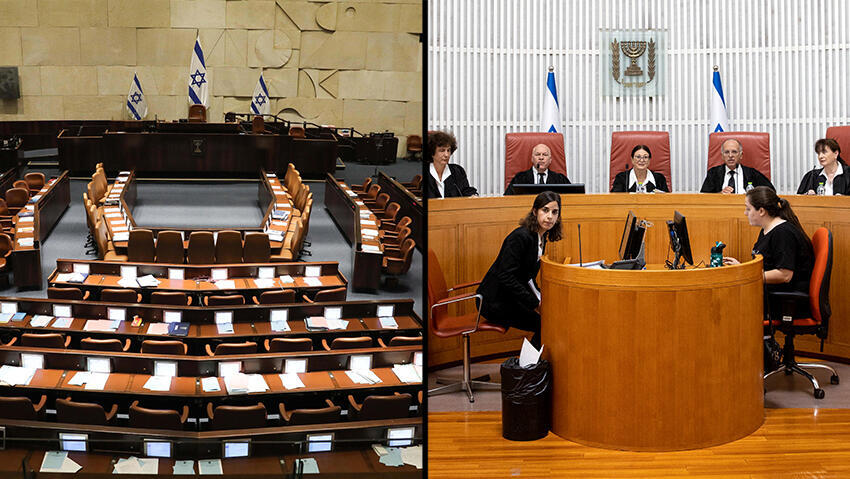Assumed prime minister-elect Benjamin Netanyahu has expressed doubts about legislating an override clause, allowing the Knesset to void Supreme Court rulings, while the Haredi sector signaled that this is a prerequisite for their support of the coalition.
The leader of the Hassidic Vizhnitz sect Rabbi Yisroel Hager, one of the senior spiritual leaders of United Torah Judaism, summoned party members Monday night and ordered them not to enter the future government if the Likud fails to commit to passing the law.
On Monday, the ultra-Orthodox council of sages, who provide politicians with their positions and power, met to agree on the matter.
The Haredi parties, who previously stayed out of the right-wing bloc's attempts to circumvent the Supreme Court, are now pushing for the law in order to ensure that a list of political steps they intend to lead in the next coalition will not be struck down by the courts. At the top of the list is a new IDF draft law that defines the special status of yeshiva students, contrary to a previous court demand to promote equality in collective military service.
In meetings with the incoming prime minister, Bezalel Smotrich of the Religious Zionist Party and United Torah Judaism leaders, Netanyahu said he intended to wait with coalition deals until the government is formed.
Smotrich was seeking to advance talks to include new policies on West Bank settlements as well as reforms to the judicial system. The override clause would significantly ease such measures.
Critics of the clause argue that it would turn the Supreme Court into a lame duck, and give the government too much autonomy. This could eventually lead to anti-democratic legislation, and harm minorities trying to push for legislative reforms.



